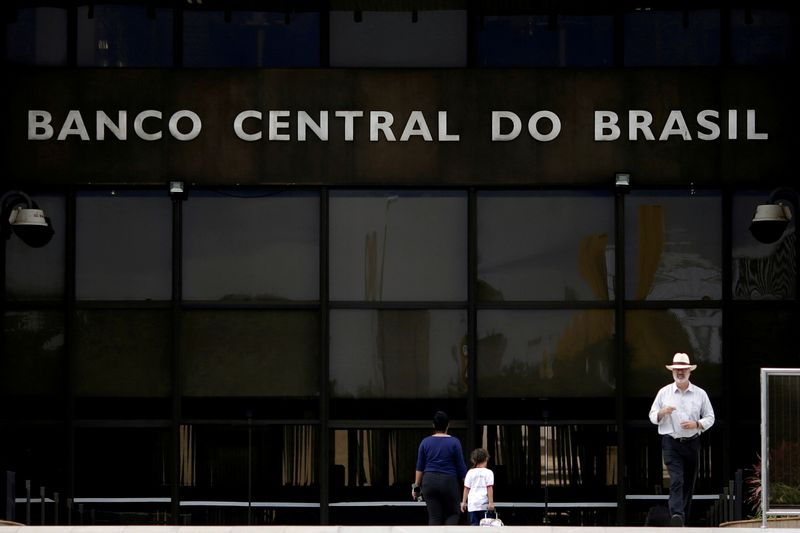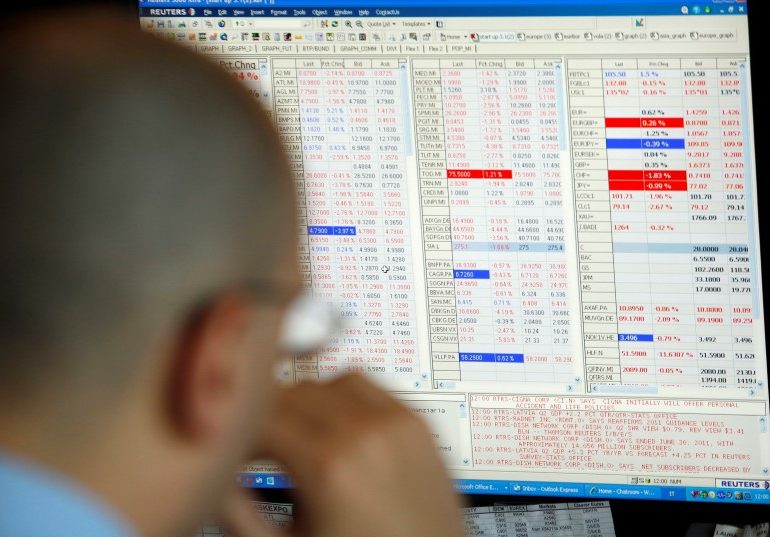 © Reuters. FILE PHOTO: The central bank headquarters building is seen in Brasilia, Brazil May 16, 2017. REUTERS/Ueslei Marcelino/File Photo
© Reuters. FILE PHOTO: The central bank headquarters building is seen in Brasilia, Brazil May 16, 2017. REUTERS/Ueslei Marcelino/File PhotoBRASILIA (Reuters) – Brazilian banks saw profitability fall last year for the first time since the 2015-2016 recession, according to a central bank report on the banking system on Monday, as the COVID-19 pandemic forced institutions to increase provisions.
In December 2020, the banking system’s aggregate return on equity was 11.5%, the lowest in the central bank’s series, although the 2021 outlook is improving despite ongoing uncertainty surrounding the pandemic, it said.
“The fall in profitability was widespread, affecting banks of different types of control, size and activity,” the central bank said in its annual report.
“Bolstering provisions in 2020 reduces the need for significant new provisions, and the rebound in economic activity will support growth, credit quality, and demand for banking services,” it added.
The report also highlighted reduced concentration of the banking system, as the market share of state-owned institutions such as Banco do Brasil, Caixa Economica Federal and the BNDES national development bank fell.
The five largest banks – Itau, Bradesco, Santander (MC:), Banco do Brasil and Caixa Economica Federal – accounted for 77.6% of total assets in December 2020, down from 81% a year earlier, the central bank said.
The concentration of total deposits in these institutions dropped to 79.1% from 83.4% in December 2019, it added.
Fusion Media or anyone involved with Fusion Media will not accept any liability for loss or damage as a result of reliance on the information including data, quotes, charts and buy/sell signals contained within this website. Please be fully informed regarding the risks and costs associated with trading the financial markets, it is one of the riskiest investment forms possible.

